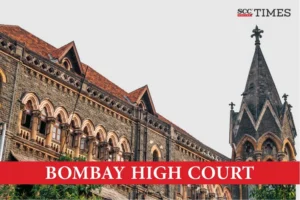Bombay High Court: The petitioner challenged the order dated 31-10-2023 passed by Respondent 1-Assistant Registrar of Trade Marks, whereby an application for inclusion of the registered trade mark ‘TikTok’ in the list of well-known marks, was refused. Manish Pitale, J., affirmed the decision of the Registrar of Trade Marks to refuse inclusion of ‘TikTok’, a registered trade mark in the list of “well-known” under Rule 124 of the Trade Mark Rules, 2017 (‘2017 Rules’) as there was nationwide ban imposed on the petitioner’s application ‘TikTok’ by the Government of India pertaining to sovereignty and integrity of India, Defence of India, Security of State and Public Order.
Background:
The petitioner was a technology company managing a diverse portfolio of content platforms along with a mobile application with the mark ‘TikTok’. The petitioner initiated a proceeding under Rule 124 of 2017 Rules for inclusion of the mark ‘TikTok’ in the list of well-known marks but the same was refused by Respondent 1 by order dated 31-10-2023. Respondent 1 stated that the application TikTok was found to be controversial by the Government of India and was banned in India, as the said application was found to be prejudicial to the sovereignty and integrity of India. Thus, the present petition was filed challenging the respondent’s order dated 31-10-2023.
The petitioner argued that Respondent 1’s refusal was based only on news reports and press releases about the TikTok ban and had not applied its mind. It was submitted that Respondent 1 wrongly referred to Section 9 of the Trade Marks Act, 1999, which relates to absolute grounds for refusal of registration and did not refer to Section 11 which was relevant, because it relates to the recognition of well-known marks.
Analysis and Decision:
The Court referred to the 1999 Act and 2017 Rules and opined that while considering such an application as filed by the petitioner, Respondent 1 was required to consider the requirements of Section 11(6) to (9) of 1999 Act. The Court opined that the impugned order did not refer to Section 11(6) to (9) and instead referred to Section 9 which was not relevant for considering the application filed by the petitioner. But the Court stated that this itself could not be a ground to set aside the impugned order.
The Court opined that Respondent 1 considered various materials which comprised of controversy regarding the application ‘TikTok’ and the press release issued by the Government of India banning the application ‘TikTok’ along with other applications. The Court stated that Respondent 1 was entitled to consider a fact which was not mentioned in Section 11(6)(i) to 11(6)(v) of 1999 Act, while considering the application filed under Rule 124 for inclusion of the trade mark in the list of well-known marks.
The Court noted that Respondent 1 found the petitioner’s trade mark ‘TikTok’ to be prejudicial to the sovereignty and integrity of India, Defence of India, Security of State and Public Order and that the Government of India exercised power under the Information Technology Act, 2000 and the Rules framed thereunder, for imposing such a ban.
The Court also noted that Respondent 1 had found material which showed that ban imposed on TikTok was due to concerns for data privacy of users and that its servers were located in China. Further, there were cases of cyber bullying and sexually explicit context and instances where pictures of some women and girls were downloaded from TikTok were found to be morphed.
The Court opined that merely because the ban on certain other applications was lifted, it could not be a ground for the petitioner to claim that the impugned order was rendered erroneous.
The Court stated that Section 11(6) of 1999 Act gave power to Respondent 1 to take into consideration any fact that he considered relevant for determining a trade mark as a well-known trade mark.
The Court stated that since the mark was already a registered trade mark in India, it did enjoy all statutory protection available under the 1999 Act, but inclusion in the list of well-known marks would obviously give added protection to a mark. Thus, the Court held that Respondent 1 acted rightfully in refusing the petitioner’s request considering that the application TikTok itself was banned in India, which till date admittedly had not been set aside by any Competent Court or Authority.
[TikTok Ltd. v. Registrar, Trade Marks, 2025 SCC OnLine Bom 2323, decided on 10-6-2025]
Advocates who appeared in this case:
For the petitioner: Swati Mittal (through V.C.) a/w Manisha Singh, Abhai Pandey, Anju Agrawal, Gautam Kumar, Ritika Agrawal, Paulome Metha, Shubhankar Sharma and Ishvendra Tiwari i/by Sonal Doshi & Co.
For the respondents: Yashodeep Deshmukh (through V.C.) a/w Leena Patil and V. Deshmukh; Pranjal Sharma and Ankit Sharma, Examiner of Trade Marks present.

